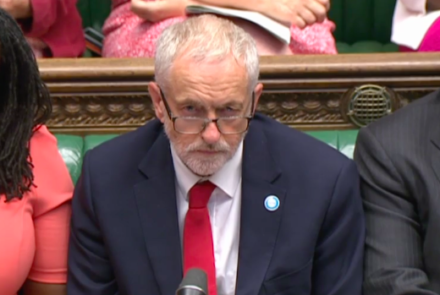
Labour’s controversial democracy review is supposed to re-entrench the power of Corbynites. But do the proposed reforms guarantee a continuation of the direction in which the Labour Party has been trying to move since Corbyn won his first leadership election? Whether the review does remake the party in the image of its leader and ensure the Labour left can win future leadership contests is uncertain.
The review proposes major changes to the way potential Labour leadership candidates get onto the ballot paper. Instead of simply receiving nominations from 10% of the Parliamentary Labour Party, they would be eligible with any of the following: 10% of the PLP/EPLP; 10% of the CLP plus 5% of PLP/EPLP; 10% of affiliated trade unions plus 5% of PLP/EPLP. While this step away from the PLP having a monopoly on leadership candidates will make future elections easier to contend from the left, the review is not a flawless continuation of Corbynism. Some of the changes it proposes actually deepen divisions in the party, including intra-left splits and particularly in terms of how MPs and members diverge on Brexit.
Amongst Katy Clark’s suggestions are plans to change the way party members shape Labour policy. The member-focused National Policy Forum (NPF) is set to be scrapped and replaced with a policy commission on the NEC. But to maintain a link with the membership in line with Corbyn’s guiding ideology “for the many, not the few”, the main policy forum will be Labour Party conference, turning member-led policy making into an annual event.
This, in theory, is good for the party leadership, and facilitates the continuation of Corbynism given the degree to which members are in line with his ideas. But by opening up policy-making in this way, the party further opens up the gulf between members and MPs – and member-led democracy would likely clash with the leadership-led policy-making that produced Labour’s current Brexit position. A poll of Labour members from earlier this year revealed that not only do over 80% of members want to stay in both the single market and the customs union after Brexit, but over 75% believe that there should be a second referendum on any Brexit deal. This is despite Corbyn having ruled out the possibility of a ‘people’s vote’: the Labour line on Brexit is still that the result of the 2016 referendum is valid, and that the party’s aim is to help deliver the best possible version of Brexit.
However, with the changes proposed in the review, Corbyn would not find it as easy to continually reject the membership’s calls for another referendum. By changing the way in which member-led policymaking works in the party, the Labour leader exposes vulnerabilities, and as Brexit continues these splits will only become more pronounced. The division between members and MPs on Brexit will dominate the conference floor yet again, and the question of what happens when both sides reach a Brexit-shaped impasse will need to be answered.
Perhaps the leadership’s obstinance on Brexit discredits the notion of member-led policy-making amongst Labourites altogether. After all, those in control only pursue members’ ideas if they already align with predetermined aims – and a significant number of Corbynites are willing to accept that as the price for quelling Corbynsceptic rebellion.
The democracy review shows an uneven step in shoring up the legacy of Corbynism. It gives way to an easier future for the left of the party, but creates the potential for a more challenging and divided present.
Sam Moore is a postgraduate student at Oxford University and a freelance writer covering politics, pop culture and LGBT issues.



More from LabourList
‘National flags and identity can be inclusive – we’re right to embrace them’
Revealed: Claims of bullying, misogyny and harassment in Young Fabians
‘Sunak’s claim of a ‘sick note culture’ is immoral and deeply flawed’